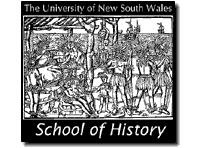| Modern Japan: Political Culture, Popular Culture - HIST2054 |
|
|||||||||||||||||||||||||||||||||||||||||||

Description Concentrates on Japan from Meiji (1868 -1912) to the Fifteen-year War (1931-45), but includes the Allied Occupation, post-war popular culture, and the apparent 'successes' of Japan's modernisation; looks at imperial Japan not just through the eyes of its 'successful' leaders, but also through the eyes of Japanese who were marginalised in society or who actively resisted state authoritarianism. Weekly topics vary, ranging from the hegemonic imperialist ideology of emperor-centred paternalism, to social movements of opposition, to changing cultural (eg literary) forms.
Learning Outcomes By the end of this course students will have developed a critical, sophisticated understanding not just of Japan's history (i.e., its past). The focus on the historiography of Japan encourages in students an awareness that history is essentially interpretation; and that the past cannot be studied without attention to the different approaches that inform history-writing. The course encourages in students an awareness of modern Japan's heterogeneity; historical continuities and discontinuities; cycles of reform and reaction; and the ambivalent nature of progress. This course will help students to refine the following skills:
Assessment
|
||||||||||||||||||||||||||||||||||||||||||||

| Contacts | Library | myUNSW | WebCT |